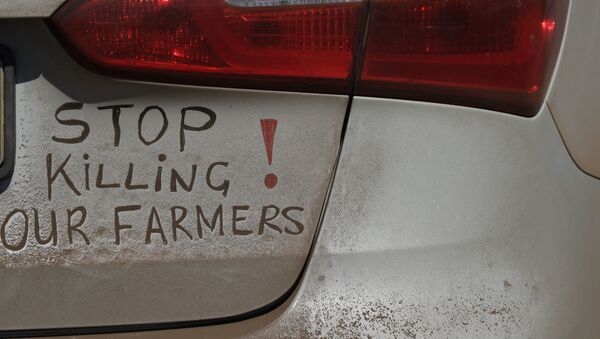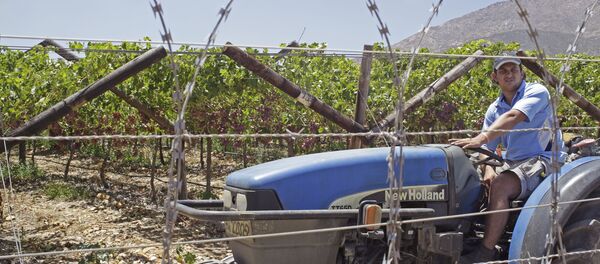Black First Land First leader Andile Mngxitama has been accused of hate speech following the emergence of a clip showing him openly threatening to kill South African whites and their pets during a rally over a row with a business magnate, the country's national media have reported.
In a speech over the weekend, the BLF leader threatened that he and his "army" would kill white people. "We'll kill their children, we'll kill their women, we'll kill their dogs, we'll kill their cats, we'll kill anything that comes before us," he said.
Mngxitama had his Twitter account suspended while attempting to backtrack on his comments, tweeting that "If you Kill black people. Will kill you too!!!" [sic], invoking white South African billionaire and Johann Rupert, whom he had accused of paying "taxi bosses" to spark black on black violence during his speech.
The Democratic Alliance and the Congress of the People parties have reported the fringe politician to the South African Human Rights Commission and the Equality Court for what DA said were his "vile and distasteful remarks."
We have reported #AndileMgxithama to the South African Human Rights Commission and the Equality Court following his vile and distasteful remarks which he incites violence against white South Africans.https://t.co/5POYIcrw5i
— Democratic Alliance (@Our_DA) December 10, 2018
Joe McGluwa, a DA candidate for the post of premier of North West province, said that Mngxitama's "dangerous rhetoric must be condemned and rejected in the strongest terms," and urged authorities to "act" against the politician "and his pseudo-revolutionary grouping."
Long-standing tensions between white and black South Africans escalated in August after President Cyril Ramaphosa said that the ruling African National Congress party would push ahead with plans to legalize the expropriation of land without compensation by making modifications to the country's constitution, which currently demands "just and equitable" payment for the redistribution of land. 73 percent of South Africa's agricultural estates belong to white farmers, who make up just 10 percent of the country's population. Much of this land was concentrated in white hands during the Apartheid regime. The government has made efforts to improve the situation since the end of Apartheid in 1994, but many among the country's black majority have criticized the slow pace of reform and demanded more radical measures.



